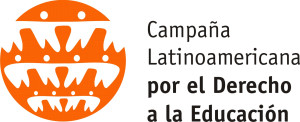Call to guarantee the right to education in Latin America and the Caribbean

In our region, GAWE 2019 was organized from April to June, under the overarching theme “Our Education, Our Rights”. Activities and dialogues were promoted to analyze and discuss the status of the right to education in the region, thus, contributing to the SDG 4 review made by the UN.
Members of the Latin American Campaign for the Right to Education (CLADE, by its Spanish acronym) in 10 countries mobilized students, teachers, experts, authorities and the whole education community, through events, communication actions, workshops, seminars, rallies and presentation of studies and reports on the status of education, among other activities.
Argentina, Bolivia, Brazil, Colombia, El Salvador, Guatemala, Haiti, Honduras, Peru and Dominican Republic organized events, debates, and communication, mobilization and advocacy actions to defend education in their national contexts.
At regional level, CLADE carried out a series of 4 virtual dialogues, with the presence of experts and members of the Campaign in 15 countries. Through these dialogues it was possible to discuss about the progress, opportunities and pending challenges and risks to secure the right to education for all, on equal terms, through free provision and education processes based on quality and freedom.
At the last virtual dialogue of the series, CLADE revealed a document, collectively elaborated by network members, which reflects on some focus areas that, from the Campaign’s standpoint, are the pillars for a transformative and liberating education in Latin America and the Caribbean.
This one, specifically focused on GAWE 2019, made a summary of all actions and reflections that took place within this regional mobilization: through videos, images, texts and audios, we described the ground covered in the development of this initiative and we also shared some information and interesting insight on the background of the Global Action Week for Education.
Enjoy the reading!
GAWE, 18 years of history and struggle for quality education for all
Every year, since 2001, the Global Campaign for Education (GCE) coordinates the GAWE simultaneously, across more than 100 countries, recalling the anniversary of the World Education Forum of Dakar (2000).
The purpose of the advocacy, communication, exchange and mobilization actions promoted by the GAWE is to draw civil society attention and call on governments about the need to realize the right to public, free and quality education for all, across the world.
Interesting facts about the GAWE
The Global Action Week for Education takes place every year. It is always launched in April but activities are organized across the countries, throughout the whole year, considering the reality and harnessing the more strategic moments in the different contexts.
>> Read more interesting facts about the Global Action Week for Education (in Spanish)
Overarching themes of the GAWE in Latin America and the Caribbean
-
2011
“Women’s and Girls’ Education is a Right. Demand it!”
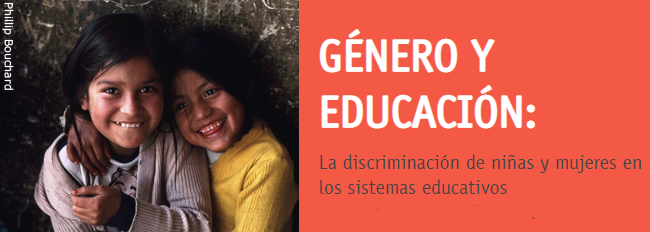
In 2011 GAWE called for gender equality in education, mobilizing education communities and activists through exchanges and actions focusing, as a core theme, on the need to overcome the discrimination and exclusion of women and girls in education.
-
2012
“Rights from the Start: Early Childhood Care and Education NOW!
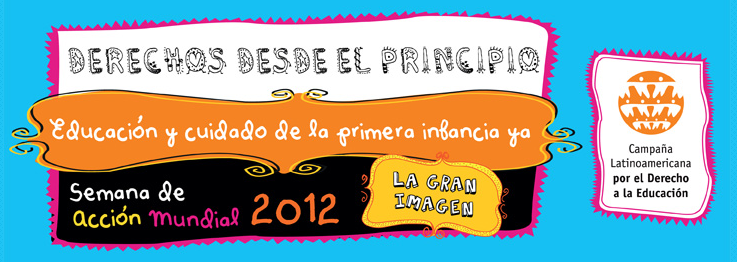
GAWE 2012 activities reasserted that boys and girls are holders of rights from birth, calling on States to adopt measures to guarantee rights for all since early childhood and with no discrimination.
-
2013
“Teachers, with Dignity!”
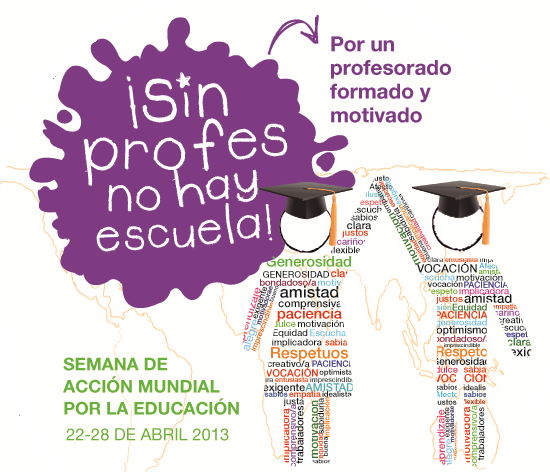
The overarching theme of GAWE 2013 was dignity and the recognition of the value of teachers. At that moment, CLADE underscored the importance of securing the following for teachers in the region: fair wages and career prospects; workdays with decent number of hours; good continuing education and vocational training according to their needs, demands, contexts, living and working conditions; recognition and respect of their rights to participation, rally, free association and free speech.
-
2014
“Equal Rights, Equal Opportunities: Inclusive Education for All”
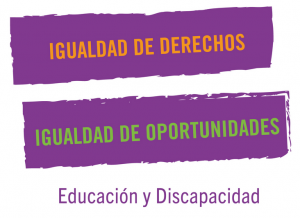
The core theme of GAWE 2014 was inclusive education with emphasis on the human right to education of persons with disabilities. At that moment, the international community that was committed with the right to education mobilized through different activities to secure adequate and accessible education centers where diversity is respected.
-
2015
“Sowing the Seeds of Dignity: the Human Right to Education in post-2015”
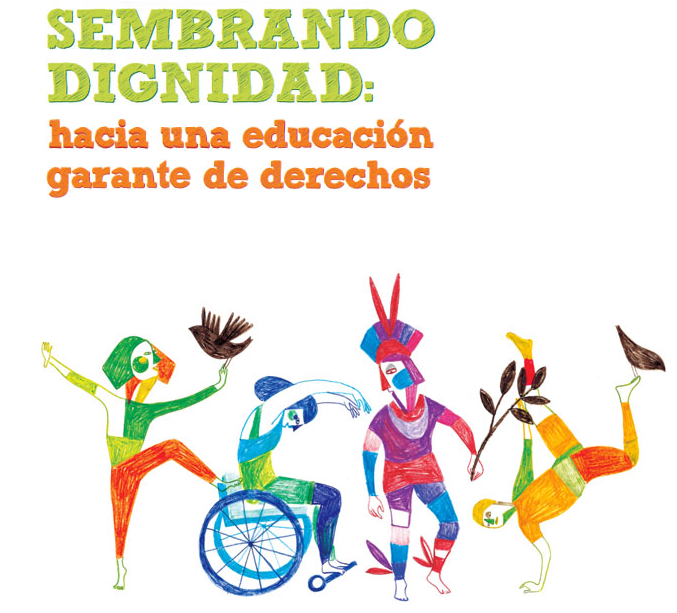
GAWE 2015 developed within the framework of negotiations and debates preparatory to the Sustainable Development Goals (SDG) and Education 2030 Agenda. In this context, actions were promoted to advocate for the inclusion of human rights and human dignity, as starting points, into the new world agendas of development and education that would be adopted in September and November 2015. Thus, a renewed commitment from States was demanded, to realize the human rights to education for all, with no discrimination.
-
2016
“Fund the Future: Allocate more Resources for Education”
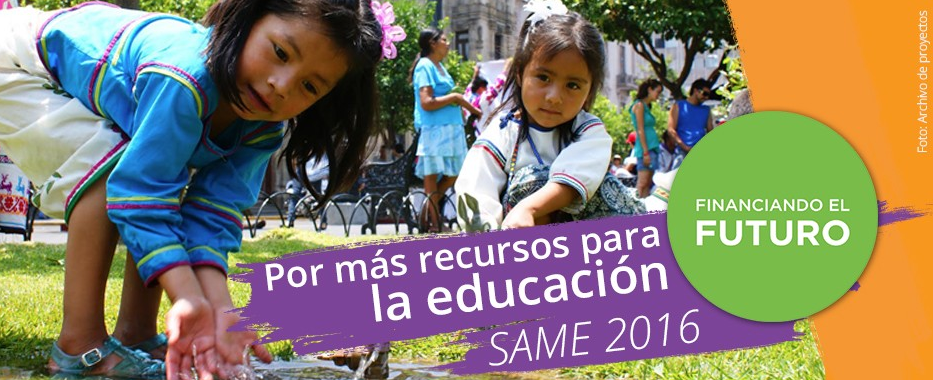
Several actions were carried out, focused on this theme, to demand States to provide enough funds for the achievement of objectives and goals agreed in the Education 2030 Agenda, which had been adopted the year before. Among other demands, the need to increase education budgets and assign more resources to meet the challenges faced to secure adequate teachers’ training was mentioned, as well as adequate spaces and infrastructure for the exercise of the human right to education with quality, equality and inclusion.
-
2017
“Stand up for Education! Time to Deliver”la educación¡ Es hora de garantizar ese derecho”
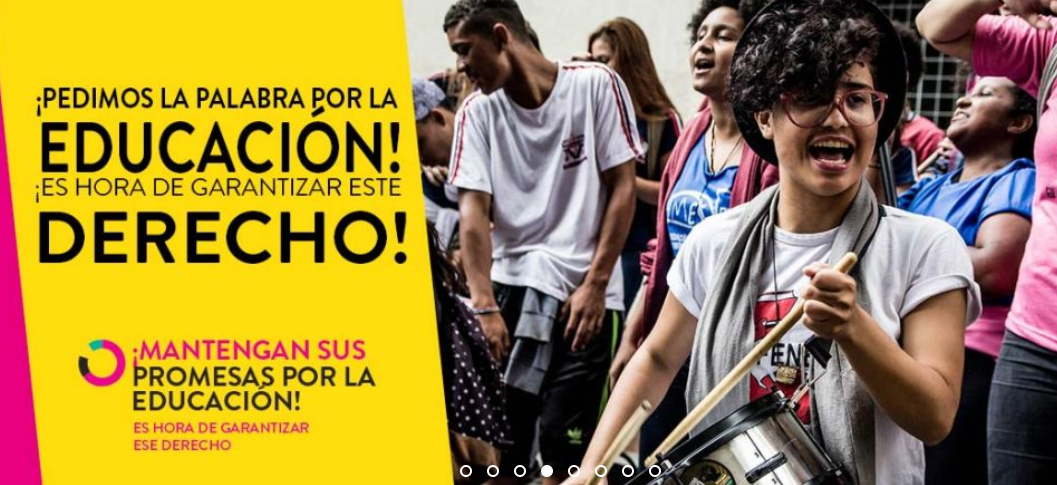
GAWE 2017 focused on providing visibility to the importance of securing civil society participation in the follow-up of the implementation of Sustainable Development Goal 4, related to education, and Education 2030 Agenda, as a whole.
-
2018
“Honor your Commitments with Education!”
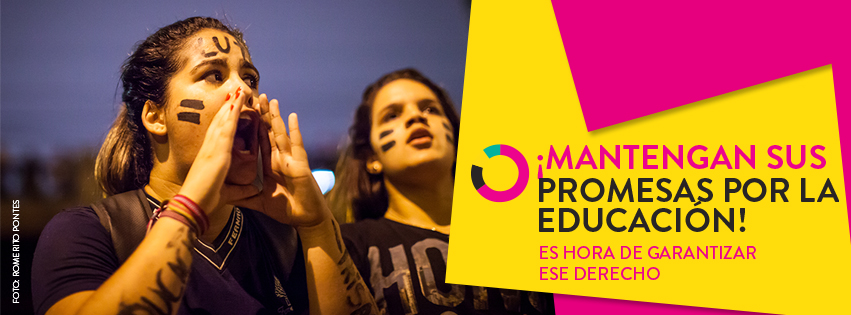
GAWE 2018 built on the previous edition that called for civil society participation in monitoring and joining continuous efforts for the achievement of Education 2030 Agenda. Likewise, in this context, governments were required to give account on the implementation of SDG 4 in their countries, in a transparent way, presenting credible means of implementation of the Agenda.
-
2019
“Our Education, Our Rights”

GAWE 2019 was organized from April to June in Latin America and the Caribbean, promoting activities and dialogues to analyze and discuss the status of the right to education in the region. These analyses, reflections, reports and mobilizations intended to contribute to the UN review of SDG 4.
Participation of our network members in the Global Action Week 2019
Argentina: a comprehensive approach
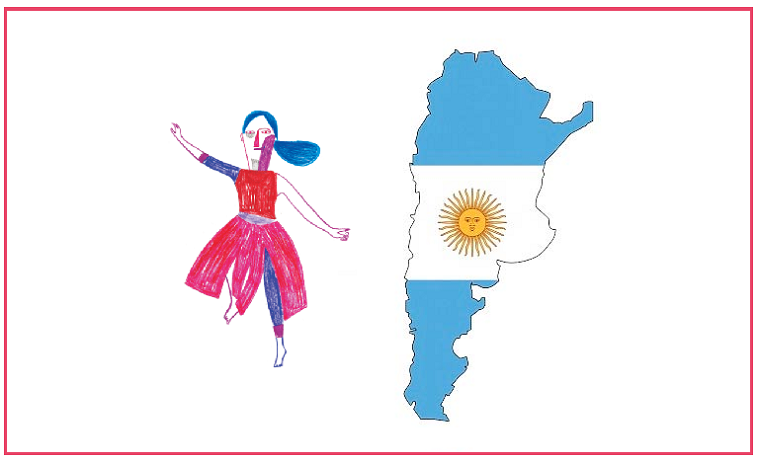
One of the objectives of GAW in this country was to promote the importance of guaranteeing the right to a fully inclusive and equitable education for all and throughout life.
>> Read more
Bolivia: violence, inclusion and gender issues
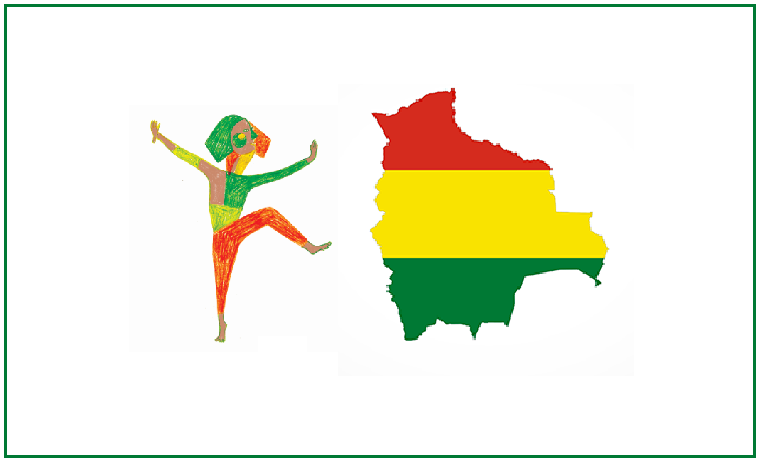
Debates and reflections were promoted about key issues of the national education agenda, such as: nonviolence, gender, respect and inclusion of different cultures and worldviews, among others.
>> Read more
Brasil: 200 thousand people mobilized
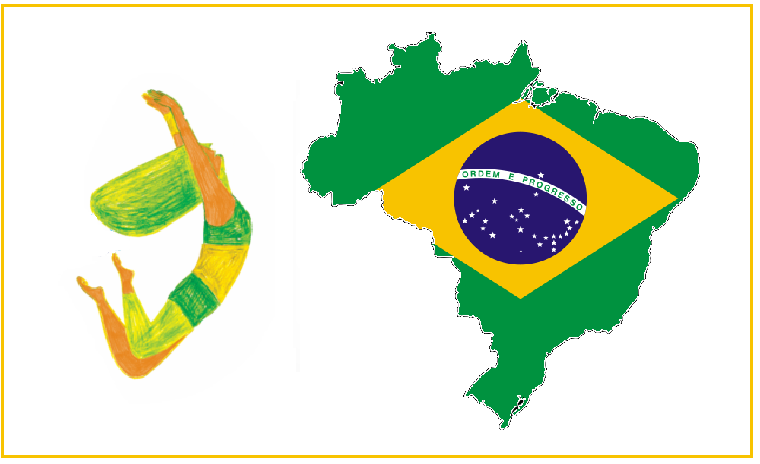
There were 1,200 self-organized activities in the country joined by students, collectives and activists. Raising awareness, among 200 thousand people, about the National Education Plan (PNE, by its Spanish acronym.)
>> Read more
Colombia: lifelong learning
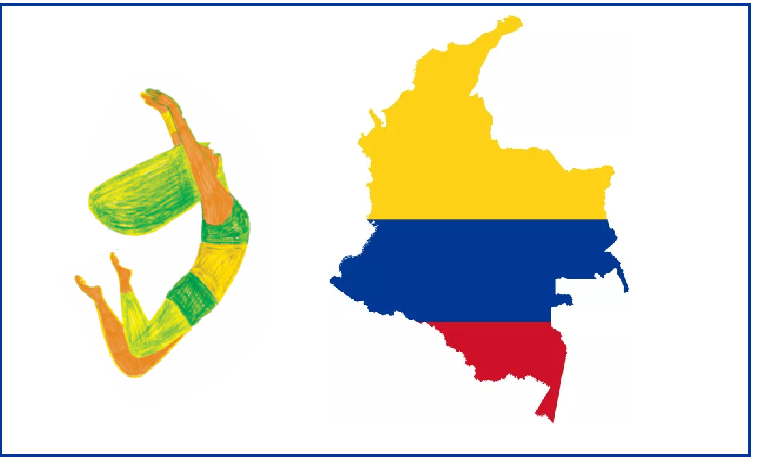
Workshops and dialogues on the right to education with families, children, young people, authorities and activists were some of the activities that took place across the country.
El Salvador: education holds up the world
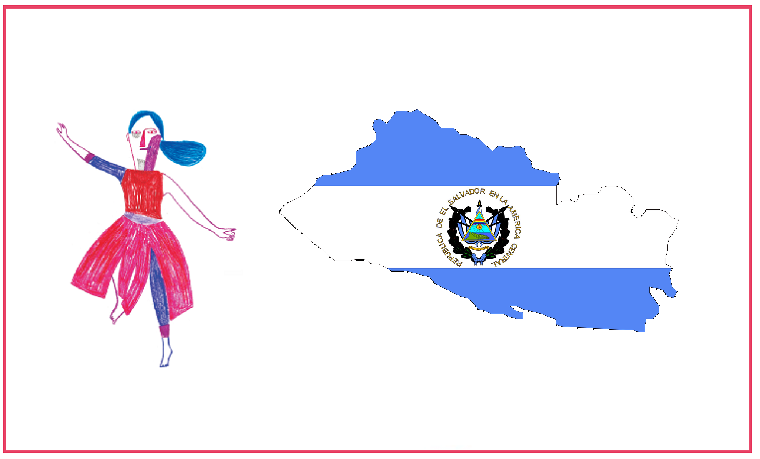
Debates were held around: protection and education in early childhood; financing for education; public and free education; as well as early childhood and preschool education.
>> Read more
Guatemala: SDG 4, inclusion and financing
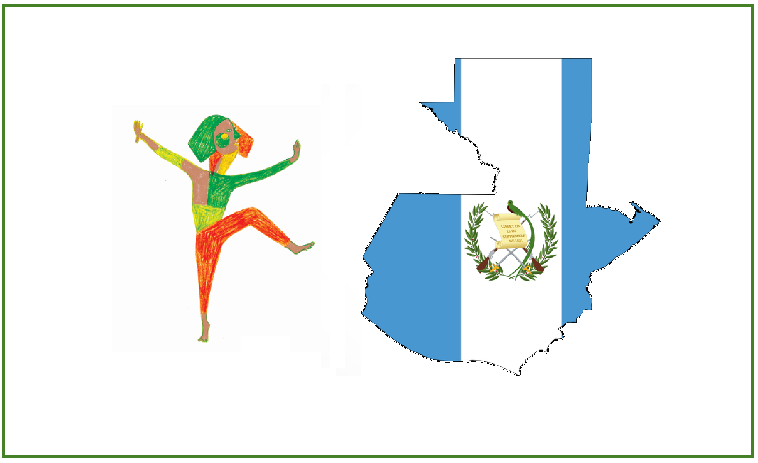
Dialogues were held in different regions across the country, and recommendations were made to the national government to invest in public resources for the achievement of SDG 4.
>> Read more
Haití: education financing and free provision
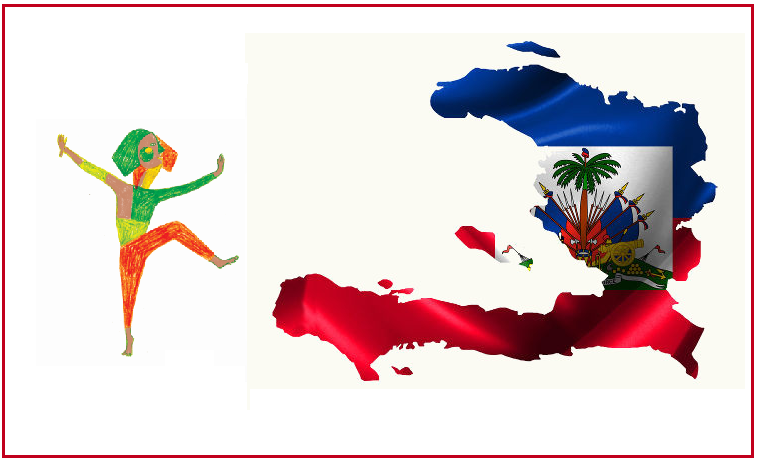
Press conferences and debates were held to strengthen civil society participation in the follow-up of SDG 4 and to demand financing for a public and free education.
>> Read more
Honduras: financing an inclusive education
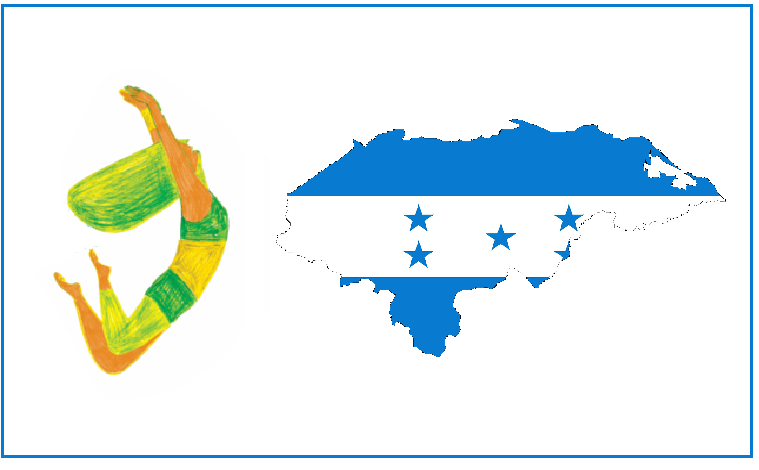
The government was shown the importance of financing an inclusive education for the most vulnerable sectors such as persons with disabilities, migrants, indigenous people, etc.
>> Read more
Perú: Advocacy for inclusion in education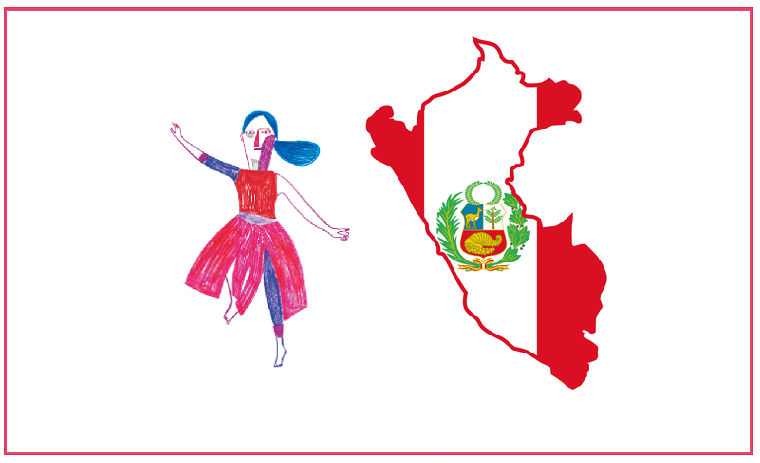
The meeting had the objective of debating and pressing the country’s government so that the demands of inclusive education are considered in the new National Educational Project.
>> Read more
República Dominicana: analyzing SDG 4
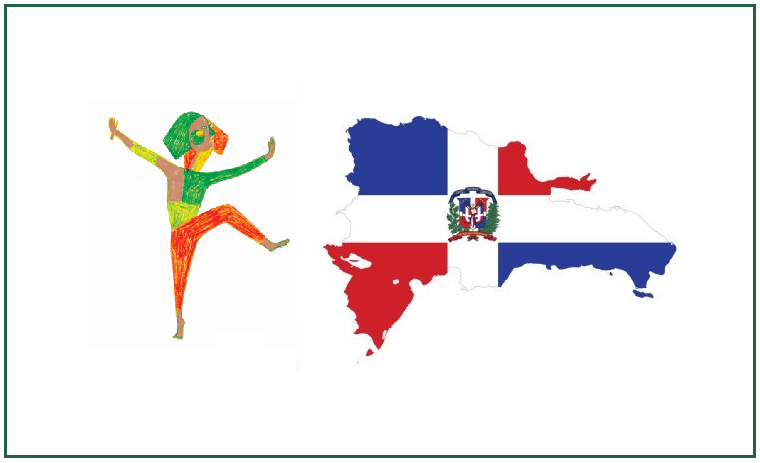
The findings of a report to shed light on the status of SDG 4 in the country were presented as well as a document where the education communities voiced the progress and challenges of education.
>> Read more
Virtual dialogues to analyze the education scenario in Latin America and the Caribbean
Within the framework of the Global Action Week for Education and under the overarching theme: “Our Education, Our Rights,” CLADE organized 4 virtual dialogues, with the purpose of discussing the current situation of education in the region and to propose ways to secure these rights on equal terms and on a free provision basis, through quality and free education processes.
These seminars were held weekly, from April 30 to May 21 and gathered CLADE member organizations and experts who delved into issues such as: financing for education, teachers’ issues, education assessments, access and coverage gaps in the public education system, criminalization and violence against gender, inclusive education and human rights advocates, among others.
1st. Dialogue: Challenges and conflicts regarding the right to education in Latin America and the Caribbean
The kick-off was a historical analysis, among activists and experts from Argentina, Brazil, Honduras, Nicaragua, Peru and Dominican Republic, on the right to education in Latin America and the Caribbean in the last period.
powered by Advanced iFrame. Get the Pro version on CodeCanyon.
2nd. Dialogue: Challenges for the fulfilment of Education 2030 Agenda in the region
The opening presentation of the debate focused on securing the right to education within the framework of the SDG 4 achievement in the region. In this dialogue, the education systems of Chile, Colombia, El Salvador, Guatemala and Haiti were assessed.
powered by Advanced iFrame. Get the Pro version on CodeCanyon.
3rd. Dialogue: Cuts on public funding for education and lack of adequate school infrastructure
In this third dialogue, data was presented on the level of achievement of SDG 4 in the region, by the UNESCO Institute for Statistics. At that moment, CLADE members in Argentina, Bolivia, Ecuador and Mexico shared progress and challenges in their own education contexts.
powered by Advanced iFrame. Get the Pro version on CodeCanyon.
4th. Dialogue: Emancipatory education that guarantees rights in Latin America and the Caribbean
Educators who participated in this dialogue underscored that a liberating popular education must be linked to social movements, to local issues, to the own context and history of each movement and each place.
powered by Advanced iFrame. Get the Pro version on CodeCanyon.
Education for Freedom: for an Emancipatory Education that Guarantees Rights
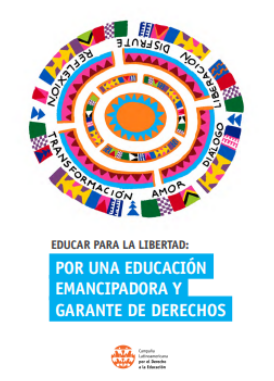
During the fourth virtual dialogue held within the framework of the GAWE, with the purpose of sharing some reflections on core themes which, according to CLADE, are the pillars of a transformative and liberating education for Latin America and the Caribbean, CLADE launched the document “Educate for Freedom: for an Emancipatory Education that Guarantees Rights”.
The publication gathers reflections and debates compiled by CLADE on this issue, addressing the right education through a comprehensive and holistic perspective, considering how it is linked to freedom, social transformation, decolonization, democracy, gender equality, communication and technologies, art and culture, affectivity and care, as well as bodies and territories.
Their reflections propose ways to move forward in the realization of a basically emancipatory education that is able to shape societies free from all forms of oppression, an education that transforms the lives of children, adolescents, young people and adults, through reflection, dialogue, critical thinking; and through the ability to find out, question, discern, imagine and take action for another possible world.
Camilla Croso: “The meaning of education is under threat”
In an interview to ALER Camilla Croso, CLADE General Coordinator, discussed issues that currently mobilize the education sector in Latin America and the Caribbean: “The situation of the human right to education is increasingly under threat, we are moving backwards at this moment.”
Among the activities held within the framework of GAWE 2019 she underscored the following: intersectorality of education and the role of the human right to education to enable the rest of the rights (civil, political, social, cultural, etc..)
“We want an education that allows critical thinking, questioning, doubting, believing in other possible worlds and transformation.”
Listen to the interview (in Spanish):
Credits
| Research and text: | Thais Iervolino |
| Editor: | Fabíola Munhoz |
| Image edition: | Samuel Grillo |
| Webdesigner: | Thiago Luís |

